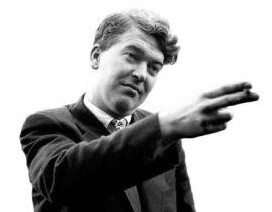American composer Tom Myron was born November 15, 1959 in Troy, NY. His compositions have been commissioned and performed by the Kennedy Center, the United States Holocaust Memorial Museum, the Portland Symphony Orchestra, the Eclipse Chamber Orchestra, the Atlantic Classical Orchestra, the Eastern Connecticut Symphony Orchestra, the Topeka Symphony, the Yale Symphony Orchestra, the Civic Orchestra of Chicago, the Bangor Symphony and the Lamont Symphony at Denver University.
He works regularly as an arranger for the New York Pops at Carnegie Hall, writing for singers Rosanne Cash, Kelli O'Hara, Maxi Priest & Phil Stacey, the Young People's Chorus of New York City, the band Le Vent du Nord & others. His film scores include Wilderness & Spirit; A Mountain Called Katahdin and the upcoming Henry David Thoreau; Surveyor of the Soul, both from Films by Huey.
Individual soloists and chamber ensembles that regularly perform Myron's work include violinists Peter Sheppard-Skaerved, Elisabeth Adkins & Kara Eubanks, violist Tsuna Sakamoto, cellist David Darling, the Portland String Quartet, the DaPonte String Quartet and the Potomac String Quartet.
Tom Myron's Violin Concerto No. 2 has been featured twice on Performance Today. Tom Myron lives in Northampton, MA. His works are published by MMB Music Inc.
FREE DOWNLOADS of music by TOM MYRON
Symphony No. 2
Violin Concerto No. 2
Viola Concerto
The Soldier's Return (String Quartet No. 2)
Katahdin (Greatest Mountain)
Contact featuring David Darling
Mille Cherubini in Coro featuring Lee Velta
This Day featuring Andy Voelker
|
|
|
|
| 
Tuesday, May 03, 2005
Kingsley Amis

For Kingsley Amis a real writer was someone for whom a decent measure of artistic talent was never at odds with being a versatile professional- someone who could turn their hand to a novel, birthday ode, television script, poem or critical essay with equal parts aplomb and enjoyment. He believed that a sure-fire way of judging the relative merits of ones own work was to see how it went over with strangers, a measure of success that has become my personal gold standard.
Among his more than twenty novels, three collections of poetry, short stories, radio and television scripts, and books of social and literary criticism is what I believe to be the funniest novel about classical music ever written, the incandescent Girl, 20.
In the words of Paul Fussell, "Amis was perhaps the first intelligent British critic to bring his wide command of literature, as well as his wit, to the task of seriously opposing the critical orthodoxy of Modernism. Stuffy critics had been doing it for some time, but Amis was something different, young, clever, militant, funny, non-academic and supremely forthright and courageous."
About Hugh Kenner's 1988 assessment of The Waste Land as 'the century's most influential poem' Amis wrote "If you see literature as a matter of influences and importances of course you are going to fall for International Modernism, with its innovativeness, experiments, developments and echoes, so much more inviting to lecture on than the intractable, unclassifiable qualities of an actual work of literature. Importance isn't important. Only good writing is."
So much more hilarious and terrifying then, when he turns to music. It's a relief to know that the man who could write that "Twentieth-century music is like paedophilia. No matter how persuasively and persistently its champions urge their cause, it will never be accepted by the public at large, who will continue to regard it with incomprehension, outrage and repugnance" also felt that "It is a great blessing to be able to catch glimpses of the world of mysterious, ideal beauty that music offers, even though I cannot truly enter it."
posted by Tom Myron
|
| |



